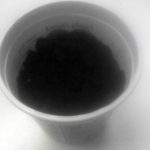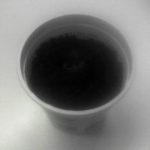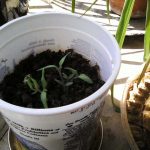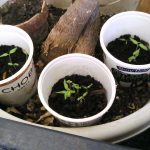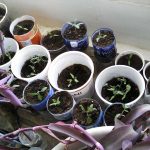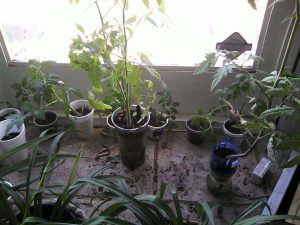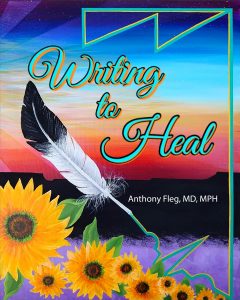What is Composting and Why is it so Important to Us by Dan Garduno
Part 1 of a 2 part series
In this day and age so many of us have become programmed into staying focused on our mundane daily routines of waking up early in a hurry to rush off to a 9-5 job to help pay for the 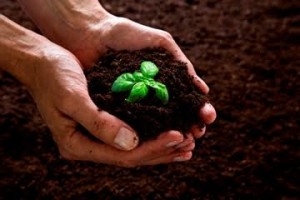 homes we inhabit for only a portion of the day, then rush back home to hurry ourselves into bed so we can rest up for this daily cycle over and over again.
homes we inhabit for only a portion of the day, then rush back home to hurry ourselves into bed so we can rest up for this daily cycle over and over again.
We have become accustomed to having no time for anything else really. And this hustle and bustle way of life has programmed us to become unconscious throughout our daily activities as we rush to get ready by grabbing a quick prepacked bite to eat, or only having time for a single serve cup of coffee as we accumulate tons of cute little plastic cups into our landfills. We have trapped ourselves into not allowing ourselves the time or opportunities to stop and smell the flowers, and especially not have time to stop and tend to the flowers.
Learning how to take the time to create compost consciously is so simple and easy to do, and extremely beneficial for our ourselves and our souls to take the time away from such a mundane and restricted way of life. Slowing ourselves down enough to be able to stop and think about how we are living and how we have become so unconscious and wasteful and uncaring for our planet and it’s natural resources can give us a whole new perspective and better way of life.
So what is compost?
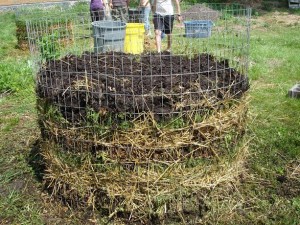 Almost everything on this planet breaks down eventually and decomposes back into the Earth, back to it’s origins of dirt. Trees do this naturally by dropping it’s fruit and leaves to the Earth below. If no one were to rake up those leaves and fruit, they would eventually break down and decompose back to the earth and become dirt once again. This is a natural cycle and therefor, theoretically, should be just as simple for anyone to do as it was so simple for the tree.
Almost everything on this planet breaks down eventually and decomposes back into the Earth, back to it’s origins of dirt. Trees do this naturally by dropping it’s fruit and leaves to the Earth below. If no one were to rake up those leaves and fruit, they would eventually break down and decompose back to the earth and become dirt once again. This is a natural cycle and therefor, theoretically, should be just as simple for anyone to do as it was so simple for the tree.
Many gardeners and farmers consciously grow their own foods so they know specifically where their food comes from, what is in it, and how it was grown. Part of that is also knowing where their soil comes from and what is in their compost before adding it to their growing soil.
Some will focus on making sure what they put in their compost piles is 100% organic foods and materials. In turn, their compost will become 100% organic! Some do not eat 100% organic foods, so they use foods with pesticides and herbicides, and other non organic materials such as printed paper and cardboard. And then some like to add animal waste and feces into their compost to boost the nutrients in their finished compost or soil. So it’s extremely important to know what those animals are eating and where their food comes from as well. And then others will add just about anything to their compost, such as meat or dairy products which have a harder time of breaking down and a longer process in making compost for soil.
So it’s extremely important to understand the different ways of composting and the variety of ingredients one may use in their compost piles. 100% organic compost is best! Utilizing foods and other materials that don’t contain pesticides, herbicides, or other harmful chemicals will help you to create the best soil for your plants. I personally don’t eat 100% organically yet, so I tend to use other food sources and materials that aren’t 100% organic. But I do my best to make sure I’m not bombarding my entire compost pile with non organic materials or foods. A strive to add more organic materials into my compost than non organic materials.
Some will add almost anything into their composts including foods that take a very long time to break down such as meats and cheese. They may also use paper materials that contain a high content of dangerous chemicals, preservatives, and ink.
And then there are some that will add animal waste or feces, also known as manure, into their compost to add higher nutrient content to their compost. It’s extremely important to know what those animals eat and where their food sources come from. Bat guano, cow and 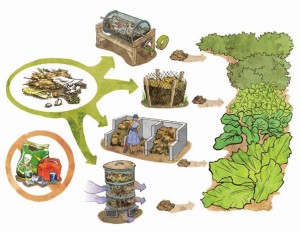 horse manure, bird droppings, and even fish emulsion are some of the main choices for manure added to our compost and soil. Even human feces can be broken down into compost but takes several years and proper management. And the human diet is extremely important if choosing this option. Everything eventually will decompose!
horse manure, bird droppings, and even fish emulsion are some of the main choices for manure added to our compost and soil. Even human feces can be broken down into compost but takes several years and proper management. And the human diet is extremely important if choosing this option. Everything eventually will decompose!
It’s important to know and understand that foods and other materials decompose at different rates of time. For instance, a tomato will breakdown and turn into compost a lot faster than a pineapple would. Cardboard takes longer than paper. Twigs and branches take longer than leaves or grass clippings. It’s almost common sense but does take some knowledge and basic information. Join me next week where I will discuss the various compost methods and techniques!
**Dan Garduno will be giving a live demo/workshop at Tammy’s Edge, find the invite here.
Read more Back to Nature articles here.
*****
[contact-form to=’communitypublishingabq@gmail.com’ subject=’Subscriptions’][contact-field label=’Enjoyed this article? Type in your email address to receive similar articles, no ads, no spam, no charge!’ type=’email’/][/contact-form]
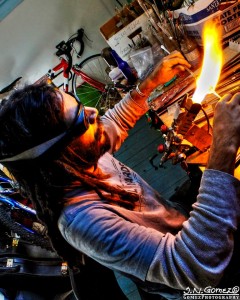
Dan Garduno
“The Glassman” will be posting more blogs and ideas as well as hosting many workshops on Self-sustainability, urban farming/agriculture, windowsill gardening, composting, upcycling, self water planters and grow beds, solar passive heating, collecting and purifying rain water, mass heaters and rocket stoves, papercrete, hemp cement, and so much more throughout 2015!
Community Publishing brings local artists of all mediums together in creative collaborations for distribution as Multimedia Books while promoting literacy in our communities. We are proud to be a community partner and digital marketer at the Rail Yards Market and the Monte Vista Fire Station. Need help with your web presence and social media marketing? Click here to find out how we can help you!
Community Publishing: From the Community For the Community
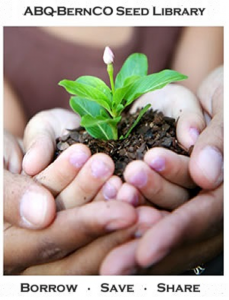 Every year right about this time of May, we all feel motivated to plant in the hopes of creating one of those beautiful gardens we see all around different neighborhoods.
Every year right about this time of May, we all feel motivated to plant in the hopes of creating one of those beautiful gardens we see all around different neighborhoods. Alex Paramo is a native New Yorker of Colombian descent. He is an Author and Co-Founder of Community Publishing. He currently resides in Albuquerque, NM. Read More about him here.
Alex Paramo is a native New Yorker of Colombian descent. He is an Author and Co-Founder of Community Publishing. He currently resides in Albuquerque, NM. Read More about him here.